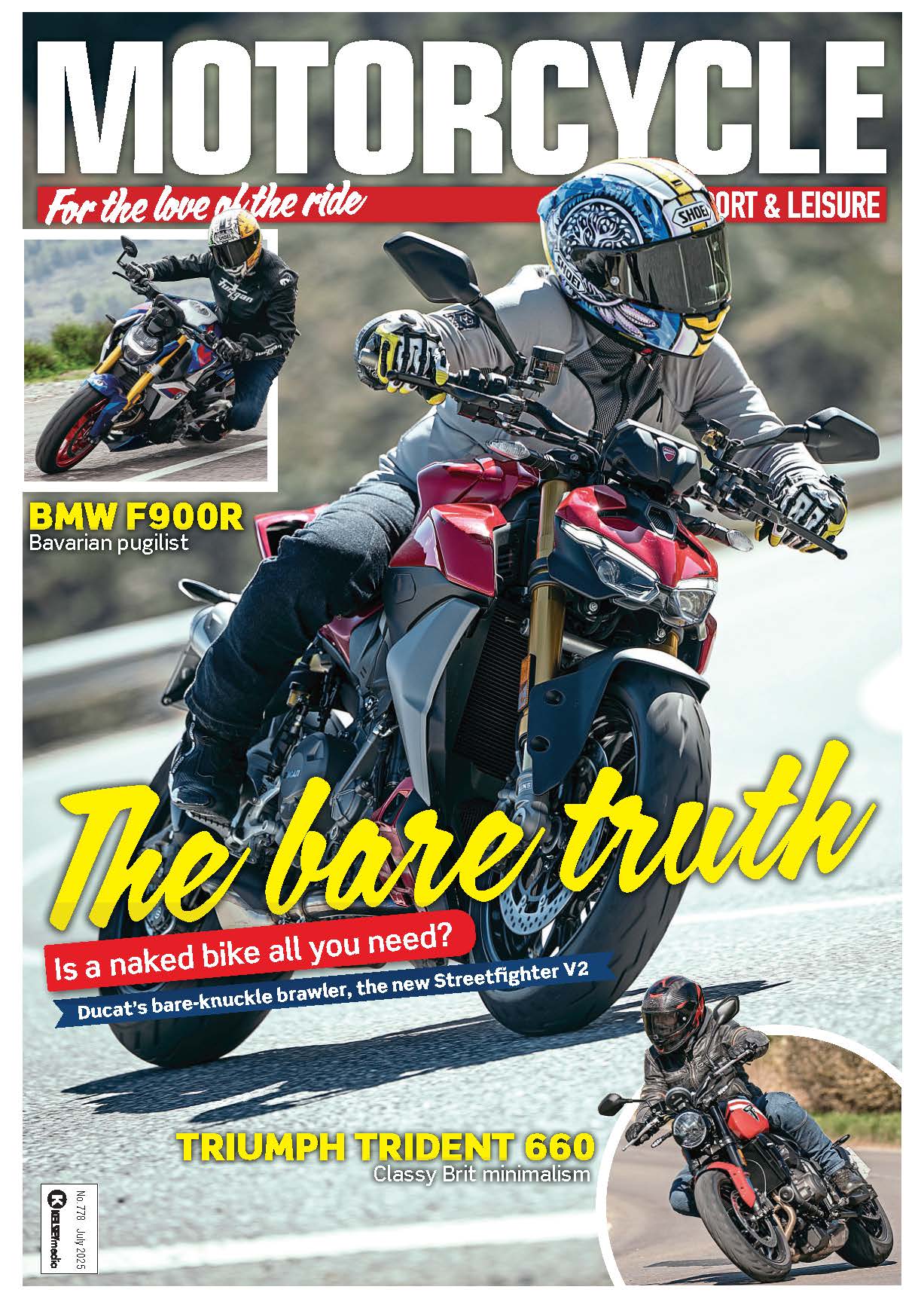Ross Mowbray sees what he makes of Ducati’s base model Scrambler, the Icon 800 – can it keep up with the rest of the range?
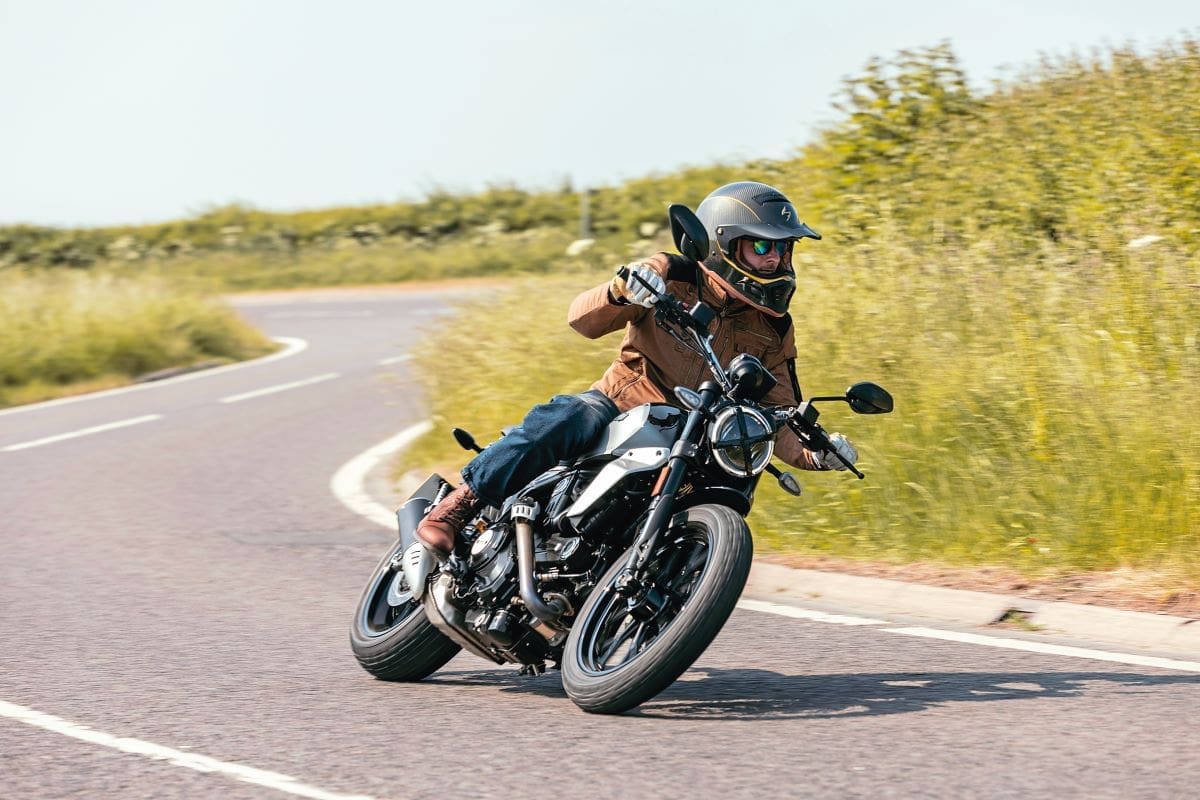
Ducati has hit gold with its Scrambler range. It sells a ton of bikes to the types of riders who probably wouldn’t have been interested in the Italian firm’s more traditional sporty output. With a couple of engine sizes to choose from, and a host of different models built around the same sorted chassis, it’s pretty easy to see why they’re so incredibly popular.
While they might be dismissed by more ‘serious’ bikers as a toy for trendy hipsters who want to belt around town in style, there’s much more to them than meets the eye. In addition to their good looks, they’re also really capable – as we can all testify after a few days of putting them through their paces in a whole host of different scenarios.
Admittedly, it wasn’t all that difficult to win me over. I’m a scrambler fan. I’m partial to 60s and 70s off-roaders; I’ve got a pair of aging twinshocks in the shed; and I’ve ridden more than my fair share of the retro-inspired machines on the market today, including a bunch of Ducatis since they were first revealed in 2015, and they’ve always impressed. Blending ease of use with potent-enough performance and solid, assured handling. And with a host of changes for 2023, Ducati reckons the latest ones are the best yet.
The Icon’s always been a favourite. I’m a frugal man and value for money is always important. At a shade under 10 grand, the base model Scrambler is the cheapest way to get your hands on your very own piece of Italian engineering from the Bologna-based factory. And it looks good, too, in a stripped-back, simple and classy kind of way.
Putting myself in the shoes of a less experienced rider, I’d go for this one all day long. It’s remarkably easy to live with – and even easier to ride. It’ll turn on a sixpence, flick from side to side with the gentlest persuasion, and will offer all-day comfort (though I’d be after an aftermarket screen if I was planning to do big miles). That said, even in the hands of a set of withered old bikers (not me – the other three…) the Icon held its own, delivering more than its fair share of smiles across the board.
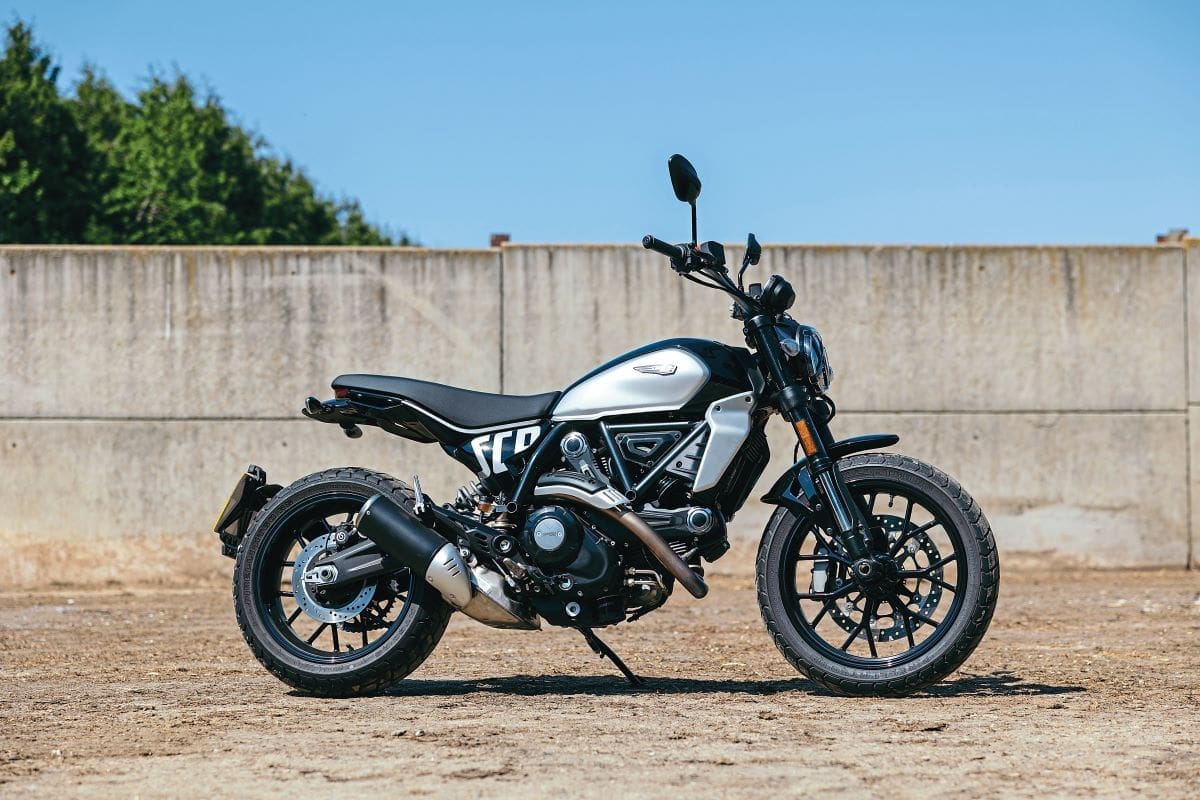
Perhaps unsurprisingly, it’s also the simplest. There’re no extra gubbins to mess around with; just grab hold of the tall, wide bars, settle into the flat, comfortable seat, and get going. That said, there is a new 4.3-inch TFT colour dash for this year. It mimics more traditional clocks, but offers easy access to all the usual information; makes it easy to flick through the two rider modes; and comes loaded with the smartphone-compatible Ducati Multimedia System. Nice.
Once rolling, it’s easy to see why the Scrambler’s won the favour of so many riders. The updated engine is a particularly lovely thing. With 72hp on tap from its 803cc ‘Desmodue’ V-twin motor, there’s more than enough punch to make swift progress out on the open road. You might think it’d feel a bit lacklustre compared to the big 1100… but it doesn’t. Okay, it’ll run out of steam a little quicker, but you’ll be in excess of the legal limit before you notice. It’s surprisingly versatile, too, as proven by how easy it was to trickle round town at slow speeds. Feather the clutch, dab the back brake and dispense traffic at will.
We were blessed with a couple of scorching days of sunshine, so I can’t really comment on the efficacy of the newly-fitted (switchable) traction control. However, the electronics on Ducati’s bikes in recent years have been second-to-none, so I’m confident it’d do a sterling job of helping keep things in check. The Icon also gets a pair of riding modes to play with (Road or Sport), each offering slightly different throttle map and traction control settings. Road’s much more attuned to the slower speed stuff, helping to smooth out any snatchiness or aggressions, while Sport is perfect for when the pace picks up and you want a bit more snap. It’s worth mentioning the new ride by throttle also means it’s possible to fit an up/down quickshifter for the first time. It’s standard on the Full Throttle and I reckon it’s well worth the extra £237. Oh, and there’s also a 47hp restricted version of the bike available to suit A2 licence holders.
While the chassis has had a bit of work done for 2023, including a new bolt-on rear subframe (rather than the original welded unit), the brakes and suspension are largely the same. That’s not necessarily a bad thing though… don’t fix what’s not broken and all that. For stopping, the single 330mm disc at the front with a radial four-pot Brembo caliper offers plenty of bite to haul up the relatively lightweight machine. That said, it’s not the sharpest, though I suspect that could be intentional, with an eye on the less-experienced riders often buying this model. At the rear there’s a 245mm disc and single-piston caliper. It works well, with enough feel to easily scrub off excess speeds or tightening your turns in town.
The front suspension is exactly the same as the previous model; a set of perfectly capable, if not a little soft, 41mm USD Kayaba forks with 150mm of travel, while at the rear there’s a preload-adjustable single Kayaba shock (again with 150mm of travel). It’s a decent set up which suits this kind of bike perfectly, blending comfort with predictability and performance.
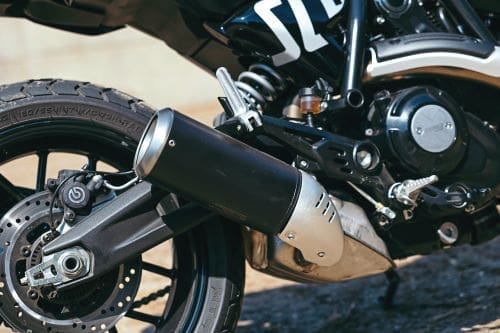
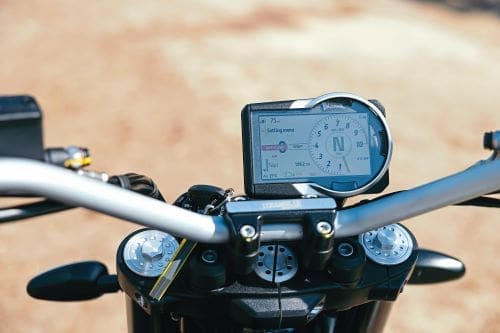
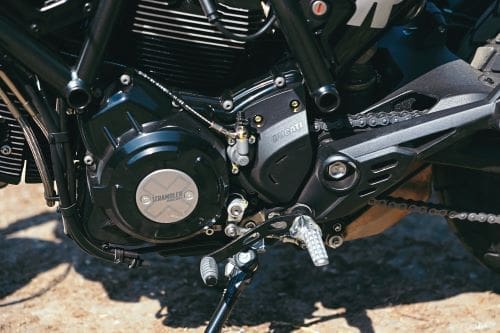
The tyres proved excellent, though. They’re the same Pirelli MT60RS ones that Ducati used on the last generation, and although they’ve got a shade of scrambler about them, they proved themselves exceptionally sticky on dry roads under fairly intense pressure. I’d be curious to see how they go in the wet, though I’m certain they’d lap up whatever you throw at it.
The Ducati Scrambler Icon is a cracking bike. Okay, so it’s not going to be belting down any green lanes anytime soon, but it’s much more than just an urban commuter, too. It’s a seriously capable road bike that offers easy-as-you-like handling, a punchy torque-rich motor, and bags full of fun.
While there are probably more affordable options on the market, if you’re looking for a stylish road bike that goes well (including a raft of newly-released middleweight nakeds) for the money, there’s still a certain unquantifiable something about riding and owning a new Ducati – and this is the cheapest way to do it.
Mikko’s opinion
I was expecting the Icon to feel like a lesser machine after the Tribute Pro, but even though it’s down on power, it has plenty to make it interesting to ride in and out of the city, and that 800cc L-twin has a lovely character. In many ways I preferred the 800 as it makes you work for a spirited ride that little bit more, and in the city it’s a tad easier to live with. But if you are heading out on bigger roads and longer distances, you’ll soon be wishing you had the extra oomph of the 1100.
Specification
Ducati Scrambler Icon 800
Price: £9995
Engine: 803cc, L-Twin, Desmodromic cams, 2 valves per cylinder, air-cooled
Power: 73bhp (53.6kW) @ 8,250rpm
Torque: 65.2Nm (48.1lb-ft) @ 7,000rpm
Transmission: Six-speed, chain final drive
Frame: Tubular steel trellis frame
Suspension: (F) 41mm USD Kayaba forks, 150mm travel, (R) single Kayaba shock, preload adjustable, 150mm travel
Wheels: Cast light alloy multispoke, (F) 3×18”, (R) 5.5×17”
Tyres: (F) Pirelli MT 60 RS 110/80 R18, (R) Pirelli MT 60 RS 180/55 R17
Brakes: (F) 330mm disc, radial 4 piston caliper, (R) 25mm disc, single piston floating caliper
Weight: 185kg (kerb)
Wheelbase: 1449mm
Seat height: 795mm (780mm and 810mm options)
Fuel tank: 13.5 litres
Fuel consumption: 54mpg
Service intervals: 7500 miles/12 months
Warranty: 24 months unlimited mileage

